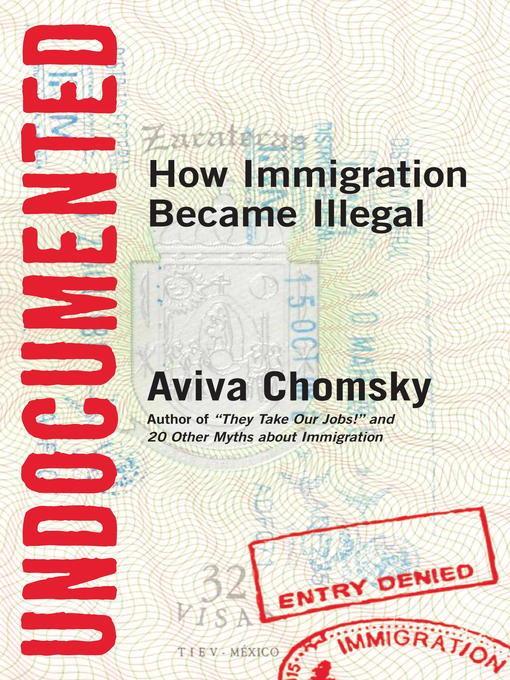
Undocumented
How Immigration Became Illegal
کتاب های مرتبط
- اطلاعات
- نقد و بررسی
- دیدگاه کاربران
نقد و بررسی

January 20, 2014
Activist and Salem State University historian Chomsky (They Take Our Jobs! And 20 Other Myths About Immigration) addresses the history and practice of U.S. immigration law in this part polemical, part historical account. The fact that “there was no national immigration system or agency in the United States” until 1890 may surprise many readers; and that “t’s illegal to cross the border without inspection and/or without approval from U.S. immigration authorities” sounds straightforward, but Chomsky reveals how “dizzying” and “irrational” it is in practice. She reviews the myriad legislations, such as the Immigration Acts of 1924, 1965, and 1990, as well as immigrants’ consequent entanglements and diverse experiences, ranging from the risks in getting into the U.S. to the perils of being there (including detentions, deportations, family separation, poor work conditions). Committed to the cause of the undocumented, and focused particularly on Mexican and Guatemalan immigrants, Chomsky reminds readers that, contrary to the freedom with which American citizens travel, for many, “freedom to travel is a distant dream.” Professional in her scholarship, Chomsky has written a book that will be relevant to those who do not share her position as well as to those who do. Disappointingly, the final chapter, “Solutions,” offers more of a review of how immigration became illegal than suggested solutions.

May 1, 2014
As deportations briskly continue, an impassioned analyst explains how so many workers essential to the economy become illegal and are turned away from our nation's southern border by the busload."Where are your papers?" is not a traditional American question. As Chomsky (History and Latin American, Latino and Caribbean Studies/Salem State Univ.; "They Take Our Jobs!": And 20 Other Myths about Immigration, 2007, etc.) demonstrates, the concept of illegality is tenuous and a relatively recent social construct too often based on politics and prejudice. For citizens of developed countries, it yields unequal privilege. However, those in underdeveloped countries become marginalized. In the United States, half of the undocumented Mexicans are seasonal farm workers. Illegal Guatemalans are needed for meat processing, and other Central Americans labor in construction, cleaning and food services. Demonstrably, illegals do not take jobs from citizens; they take jobs citizens won't do. It is not legal for them to cross the border without inspection or permission to stay where they toil. Yet, subject to fraud, crime and discrimination, in danger of kidnapping for ransom, death in the desert and fraud at the hands of "coyote" smugglers, they come seeking a place where their children may thrive. Chomsky clearly documents the plight of all the criminalized nannies, maintenance workers, lawn cutters, cleaners and cooks. She challenges the common understanding of our shifting national immigration policies, which, nourished by lobbyists, political consultants and much of the media, run on low wages for immigrants. Supported by a careful survey of legal history, the author presents the case (one that usually receives scant attention) that immigration should not be characterized as illegal.An urgent, earnest report, albeit one not likely to receive quick legislative repair, on the fraught national immigration policy.
COPYRIGHT(2014) Kirkus Reviews, ALL RIGHTS RESERVED.

























دیدگاه کاربران